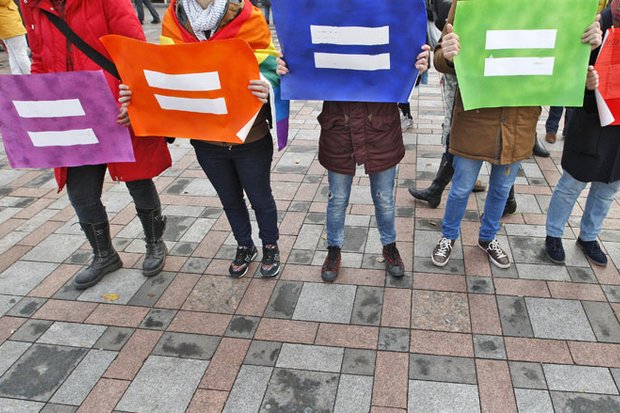
While Thailand has become more tolerant towards the LGBTI (lesbian, gay, bisexual, transgender and intersex) community, it still has significant level of discrimination and exclusion in various forms, according to a new World Bank report.
The report tilted "Economic inclusion of LGBT groups in Thailand" shows that Thailand, though considered progressive among developing countries, still has high levels of discrimination against LGBTI people, especially in jobs and housing. The World Bank gathered and analysed quantitative data on economic and financial outcomes from a large sample of LGBTI people in Thailand.
The report, published last Friday, found that discrimination remains prevalent when LGBTI people look for jobs, access education and healthcare services, buy or rent properties, and seek legal protection.
It is basically a reprint of a May, 2017, report issued by the World Bank.
A lingering social stigma and exclusion leave the LGBTI community to exposed to discrimination, violence, and diminished opportunities in life, as well as limiting their access to markets, services and space, said the report.
Drawing from an online survey of 3,502 Thais (1,200 non-LGBTI participants and 2,302 LGBTI) aged 18-39 years old, the majority of whom are living in Bangkok, as well as qualitative data from in-depth interviews, the report found that most discrimination occurs in the work environment.
Asking participants to respond to questions relating to their experience in education, employment, housing, finance and health insurance, the report shows that there is extensive discrimination in the labour market, with 77% of transgenders, 49% of gay men and 62.5% of lesbians stating a belief that job applications had been refused because they were LGBTI.
Of all LGBTI respondents, gay men perceived themselves to be better off than the other groups in terms of discrimination, followed by lesbians. Discrimination was felt most strongly by the transgender community.
Moreover, negative perceptions persist, with more than one-third (37.4%) of non-LGBTI survey respondents believing it to be acceptable for employers to discriminate on the basis of sexuality.
Also, only 51% of the LGBTI respondents were aware of their legal rights regarding protection from discrimination in Thailand.
"As part of its national transformation and promotion of the new, modern 'Thailand 4.0' at home and internationally, Thailand has the opportunity to advance and foster the inclusion of LGBTI people in its economy and society," said Ulrich Zachau, World Bank Director for Thailand, Malaysia, and Regional Partnerships. "Only by including LGBTI people can Thailand mobilise the strengths and full productive potential of all its people. LGBTI inclusion is the right thing to do, and it's the smart thing to do."
Among other things, the report suggests the government strengthen and enforce legal protection against all forms of gender-based violence, adopt a national same-sex partnerships law, develop and implement legal measures to allow partners to be beneficiaries of health care, and fully integrate Sexual Orientation and Gender Identity (Sogi) into the Gender Equality Act of 2015.
These goals, the report suggests, can be achieved through further gender equality legislation and the development and implementation of Sogi nondiscriminatory clauses into employment law.
National Human Rights Commission of Thailand commissioner Angkhana Neelapaijit said a diverse workforce and nondiscriminatory environment could only benefit the Thai economy.